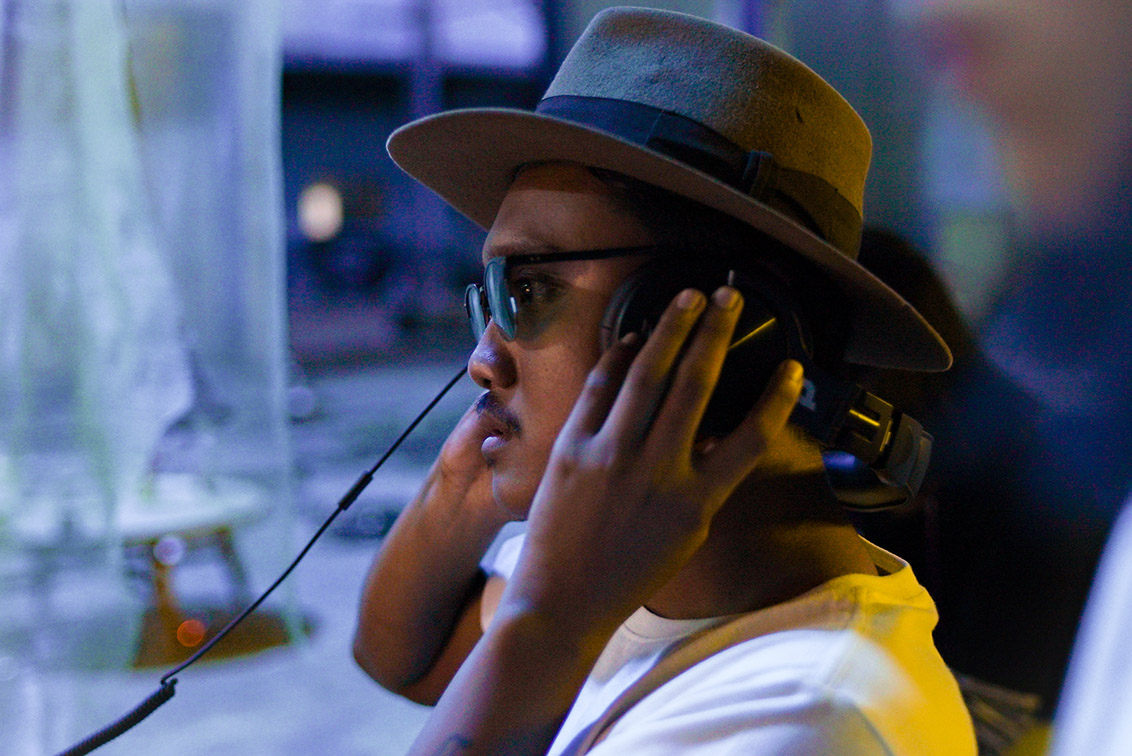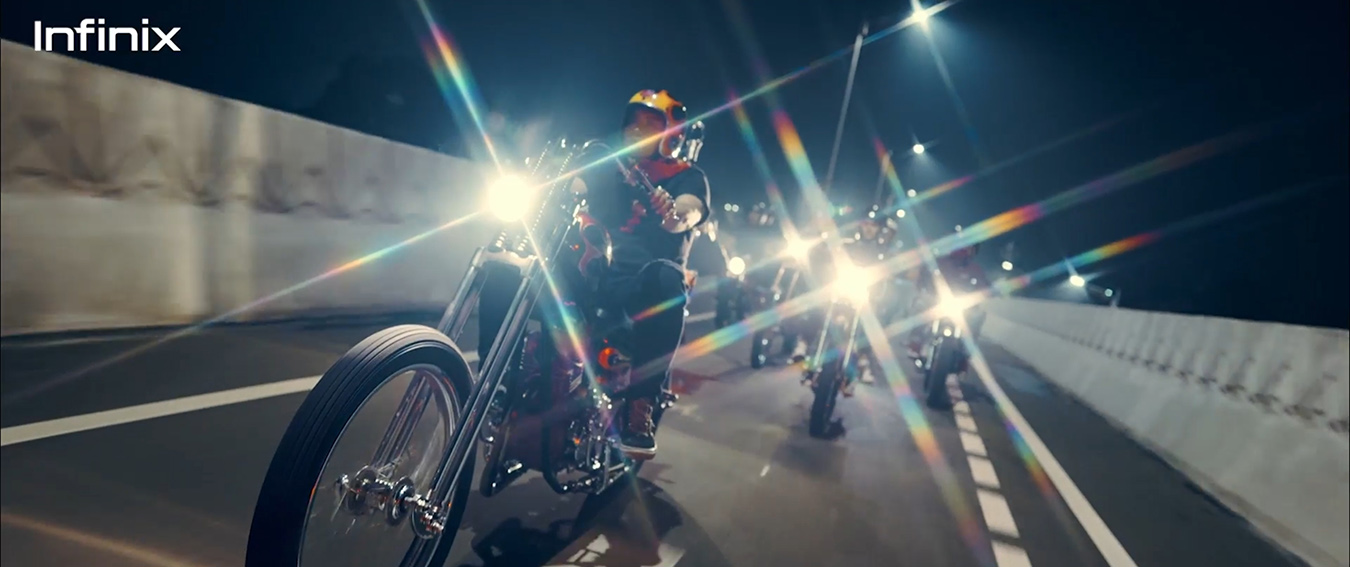DIRECTOR’S PROFILE: Meet Directors Think Tank Director Zhafran S

Indonesian-born and Jakarta based Zhafran S is a director at Directors Think Tank. Campaign Brief Asia put 15 questions to Zhafran to find out more about him and his approach to directing.
When the 26-year industry vet isn’t directing, he can be found listening to his collection of vinyl ‘arabic-jazz fusion music while cooking some great Indonesian dishes in his kitchen.
1. What’s your favorite part of the job?
My favorite part is the thinking of an idea, then the result. Why? Sometimes the director must think about fresh ideas or a treatment for the project. I can search it by seeing everyday life to get the inspiration and using the key word “what if?”, what if..bla ..bla..bla then when I got it, I don’t believe in this idea, because I must search for another idea to compare, after that I try to present to someone and see what response I get. I don’t know, this is very exciting and I love to do all things to get an idea.
2. What is your most productive time of day and why?
Certainly morning, I can focus on something that I want to do. And I have so much more time in the morning, then I continue into the night. Actually I read some books about the advantages of doing something in the early morning and I got a lot of inspiration at that time.
3. If you didn’t have this job, what would you be doing instead?
Architect, because before I studied at the Jakarta Institute of Arts and majored in directing, I also studied at Vocational school and did some electrical things and civil design for three years. I wanted to be an architect one day. but I couldn’t get it. So after graduating from vocational school I couldn’t do anything for one year (stressful thinking, why can’t I go to architecture or civil design school).
But it’s okay, I can tell you I am very ambitious and do everything to get what I want, I still love and learn till now by searching for the greatest architect who ever lived in this world. And knowledge of architecture I thought it similar to film or audio/visual, we make a structure from blank – finish.
4. How early did you know this would be your path?
It all started when I enjoyed telling a story and having great conversations with everyone. When I studied at the Jakarta Institute of Arts, I don’t believe that I could stay in this field. Then I started to study harder about film, audio/visual and convince myself this will be worth it for me. So I got a scholarship, I worked with my seniors, I read everything and learnt about film, psychology, communication, all the things that I can learn to support my audio/visual studies. I studied very hard for it.
I would go to some film festivals and feel very rewarded. I directed small projects before I graduated from this school, because everything I do is ambitious. Then I realized this is for me and it inspired me so much.
5. Can you name some recent jobs?
Maybe the “LAST PACKAGE”, because this is my first shooting commercial using a product phone to make storytelling ads. It very challenging, it is unique and I have never done this before. My client is XIAOMI, one of the biggest smartphone companies in Asia and I got this opportunity to make something with their product, I am very grateful for that. Prior to this project, I have also recently delivered spots for the brands Wardah and A Mild.
6. Do you put on a different hat when shooting for a specific genre?
I think every director wears different hat’s, it depends on the situation. Building good communication and having a good talk with anyone is good for me. I want everything good from the concept, execution and the result. But I try to understand people and the team, then you can make a good collaboration for that and trust them as your partner too.
7. Have you been continuing to shoot during the COVID crisis? Can you describe that experience?
I never did ‘full-on’ did shooting in this pandemic situation, with this current government regulation. It’s challenging because we must reduce all things, cannot use some location, reduce crew, and sometimes talk with clients by using zoom or Gmeets and many more shooting habits that we can’t do since pandemic. but it’s okay, I am getting used to it. I must add, that it really helps being part of a regional production house, as we can share the workload across the different country offices and take ‘full-advantage’ of our in-house resources such as our full-service postproduction company and Bolt Studio.
8. Do you have a favorite piece of kit?
In 2019, I bought something called a Director’s Viewfinder. I use it to discuss with DOP, sometimes I suggest a shot by seeing the focal length or something. But I lost it hahahaha.
9. Are you often asked to do more than direct? If so, what are you asked to do?
I discuss everything that I think is important to discuss, with client, talent, crew. I love to discuss all things with everyone, because as I know this is a collaboration, everyone has an idea and opinion about something. So I will listen to them and let them talk.
10. What are three pieces of technology you can’t live without?
Laptop or Tab (there are no Design tools apps!), phone. Idk, just two things that are important right now.
11. This is a high-stress job. What do you do to de-stress from it all?.
First get some ‘alone time’ and then grab some books, do the sports things, listen arabic-jazz music. perfect!.
12. How do you manage producers’ expectations with the reality of what can really be done?
Always discuss. I know the director must make a good decision. Talk about expectation. I must learn about the brief and what can I offer to the story or concept, consider the result if we are doing this A treatment or this B treatment. so, after discussing with the producer, we follow the concept.
13. How do you manage your time? Do you manage expectations or try everything they ask of you?.”
See the project, this is the heavy concept or what. I always manage the expectations according to the “situation” and listen to what they want, I must know the “things” that I want to make from the brief. So I can offer some concepts or treatment for them.
14. When someone who is starting out asks what they should learn, what do you recommend?
Try to have a good conversation, talk with other people nicely, and hear what they want to tell you. Learn about humans, learn about communication, and confidently talk to many people.
15. How do you take criticism? Do you find yourself defensive or accepting of others’ ideas (good and bad)?
Criticism as we know is good for us, so I could be a person who accepts criticism. In this period of time everyone has freedom of speech, so they can say anything to be it good or bad, but at least make it constructive!! hahahaha.

